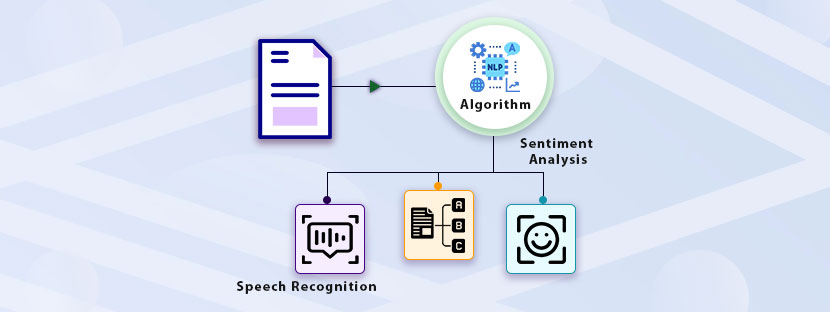In This Article
Data is that, data is this! Data is everything!
It doesn’t matter what industry you belong to, the discussion will always leave a point about what data you have. With no exception, like other industries, the real estate industry also needs enormous volumes of data. In the commercial real estate business, data serves the most vital role. That’s why real estate data aggregators extensively rely on efficient data management processes.
The quality of the database defines the credibility of excellent data and its market acceptance. Maintaining data hygiene while scraping it from different sources is essential in this sector. However, this takes time and resources so real estate agencies majorly delegate these tasks to outsourcing companies. Outsourcing helps them to get all these tasks on time and also ensures proper data quality.
The process of managing a real estate database involves various attributes. collecting real estate data, data cleansing, data verification, data enrichment, and others are part of it. With the help of outsourcing Real Estate And Mortgage Industry services, real estate companies can easily perform these tasks.
Hence, this blog aims to explain why real estate data aggregators need real estate outsourcing in detail. Here you will cover what challenges data aggregators face and how outsourcing can solve them.
Here we go! But first, let’s have a look at what property data is.
A. What is Real Estate Data?
To explore the real estate market what you need first is the property data. Property data includes information about properties, their current value, ownership details, etc. Besides all the essential information, property data also includes property listings, market prices, sales records, and other things. From real estate investors to buyers, everyone needs accurate property data to proceed with their tasks.
From investors’ perspective, current and accurate property data helps them to decide where they must invest. They usually check the scope of a property in the coming years by checking its records. On the other side, real estate buyers also check property information before making the final deal. Thus, the need to maintain property records is paramount in this sector.
B. Types of Data in Real Estate and Their Attributes
For real estate data aggregators, understanding the various types of property data is very essential. Having proper knowledge regarding all data types and their attributes will help to manage property data easily. Here is the list of different types of property data;
1. Commercial Property Data
Properties that generate income come under the category of commercial properties. Therefore, the data related to these types of properties are commercial property data. A database with information on properties like hotels, shopping centers, etc is an excellent example of a commercial property database.
2. Residential Property Data
As the name suggests, the residential property database will contain information related to homes, apartments, flats, and so on. These properties do not generate income but store future values. Hence, real estate investor prefers this database for making their investment properly.
3. Industrial Property Data
The industrial property database contains information related to warehouses, logistic facilities, production units, etc. The real estate data aggregators need this database for research to find the best place to establish factories. On the other side, industrialists also need this data to calculate the present market value of their establishments.
4. Land Data
Among all the types of data in real estate this data talks about vacant lands. In most cases, investors buy the vacant land to develop residential plots in the future. Also, in the future, after developing the residential plots, the value of the vacant land would increase. Hence, data aggregators always keep a record of vacant land through the validation of real estate property data process.
Maintaining a property database is not a simple task, as it includes different attributes. That’s the reason why task outsourcing has become a very common practice. However, let’s see what attributes you need to check and include in your property database here.
The property database must contain the exact location of the property. The address of the property and its location on the map is essential for getting the proper location of the property.
The density of the plot depends on the dwelling units of the gross area. Investors as well as the real estate data aggregators need this data to calculate the value of property. This data also helps the government and building agencies to determine how much area should be devoted to residential projects.
An efficient property database will include different unit areas of the property. Here, the site area indicates the total floor area of the building thus it gives a true picture of the property. However, sometimes some projects cover multiple buildings thus the site area will be added to the database in the average figure.
Tenure and ownership both are interchanging terms that play a huge role in the real estate industry. Besides owners’ information, a real estate database will also contain several conditions that make owners eligible to hold the land. Understanding property tenure as one of the types of data in real estate is essential for doing business in real estate so aggregators prefer to have all this information.
Read our detailed blog on -> Real Estate Data Entry Services – Features, Benefit, Tips.
C. Challenges Real Estate Data Aggregators Face in Managing Real Estate Data
Are you a real estate aggregator but rely on your gut feeling to make any decision? Well, this is not your case only rather people across this industry are facing the same. The development of Machine Learning (ML) or Computer Vision for real estate will help this sector in the coming decade. However, the current challenges that the industry is facing are;
1. Real Estate Needs Comprehensive Data
Customers are now more conscious about their data therefore it becomes a challenge for the third party to gather data. The challenge appears more intense in the real estate sector as the sector is monitored with different laws. Real estate outsourcing are doing better in handling property data with great care.
2. Prevention of Data Decaying
Preventing data decay is crucial for real estate data aggregators, as dynamic data attributes like property titles, mortgages, taxes, and appraisals need regular updates. Failing to keep this information current, refreshed, and comprehensive can jeopardize a company’s brand credibility and revenue streams. Selling outdated, incomplete, or inaccurate property information in the real estate data repository can erode the trust of the stakeholders. Also, this will diminish the standing of a property data aggregator in the market.
3. Data Accuracy is Paramount
Like other sectors, inaccurate data is a challenge for this sector as it reduces the credibility of the source. The credibility of the data also lacking when clients receive outdated property data. The task of data entry in this sector is to ensure that the data minimizes inaccuracy in the database.
D. Real Estate Tasks to Outsource
What traditional real estate data aggregators do is collect property data from a variety of sources. After collecting real estate data, they will validate the collected material and then store it in the database. However, doing the same task with the help of an in-house team may not be as effective as doing it through outsourcing. With the help of outsourcing, real estate businesses can do the following things;
1. Managing Property Data
Recoding property details in digital format is a challenging task and real estate businesses are focusing on that. Property details include property deeds, licenses, lease documents, and other things. Digitizing all the records will ensure quick access to these records and ensure proper maintenance.
Besides that, keeping the data in digital format also helps in building search operations. In other words, it will make the data available in a searchable format so stakeholders can search for data directly from the database.
However, the main task of acquiring the property data starts from finding the data source first. The data source can be global or local depending on the need or the requirement of the real estate project. Also, with the help of data enrichment, the database acquires property data from public sources. Real estate data aggregators can have data from traditional and non-traditional sources as well.
2. Validating and Verifying Property Data
From inspecting from the angle of accuracy, validating the property data is extremely important. Validation along with verification makes the data accurate and compliant. However, rule-based validation can help businesses to accurately eliminate errors. Real estate businesses nowadays validate their data via outsourcing.
But why do you need to validate property data? Because validation ensures the correctness of the data and makes it reliable. Properly validating the data will help real estate businesses to gain accurate insights from the data.
The tasks of validation of real estate property data have many layers, and companies perform the outsourcing in every layer with caution. The first layer is all about validating the postal address of the registered plot. Therefore, the data validator will initiate the demographic and GIS data validation process. After checking all the property information, the validator will check the property owner’s information. The task will include verification of the mobile number and email address of the owner.
3. Standardizing Property Data
Having all data in a structured format is desirable, especially in the real estate sector. Investors and real estate data aggregators always want to have the database in a structured format. Therefore, outsourcing companies make the real estate data repository into a structured and standardized format.
Structuring not only helps in maintaining consistency in data but also helps the users to find the data. The task of making a standardized database is also simple as the outsourcing agency will normalize the datasets. For instance, if a zip code is in words then they will convert them into numbers. Data users used to see zip codes in numbers thus the process will normalize the data.
4. Enriching Property Data
The workload of the property data aggregators has increased over the years. Now real estate stakeholders want more information related to their selected property. Property details include the building footprint, latest market tariff, sustainable reports, and so on. Without all these crucial reports, it is difficult to sell a property at present.
However, data enrichment plays a major role in this process as it will include vital details in the database. Therefore, real estate data aggregators will have all the data handy without proceeding with any further process. The data enrichment process will add data related to socioeconomic details, and demographic information to the database. Interestingly, the process will also add images and attachments to the database.
5. Updating Property Listing
At present, you can observe most of the publicly available property databases have automated listing options. This option automatically lists the property in the database along with monitoring them. However, you can also do that in your database with the help of an amazingly efficient outsourcing company.
E. Developing ML Models
The development of Artificial Intelligence (AI) has revolutionized the real estate industry from scratch. These systems are making the process automated and easy for data exports. The algorithm of the Machine Learning (ML) models can easily manage the pricing elements of properties. Therefore, the tasks of real estate data aggregators become less with the integration of efficient ML models.
The developers of ML models need accurate data related to real estate to train the models. These models act like a trained component that can perform automated tasks as per the instructions. However, for that, developers have to feed these models with appropriate and authentic data. Compromising data quality will directly impact the accuracy of the model.
On the other hand, training ML models requires huge volumes of processed data in collecting real estate data. For a company, generating a huge quantity of real estate data is quite challenging. That’s why outsourcing comes into play to provide the developer with accurate real estate property data in bulk.
Besides handling data in bulk, skills also play a critical role in managing property data. Outsourcing not only provides real estate data aggregators with bulk data but also ensures proper quality. Hiring real estate outsourcing will revolutionize the process of real estate data repository management completely. Besides that, validation of real estate property data will be easier with outsourcing.











